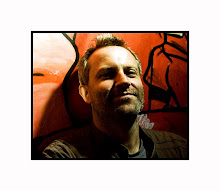 |
| Disused mill, Southwold |
Of course, as a writer – and as a writer of fantastic fiction – I possess a special licence to write what I like about wherever I like. In London Revenant, for example, an earthquake destroys the city and a bunch of people spend time trying to find hidden parts of the capital, insane hotspots that don't exist on the A-Z. I didn't worry too much about offending the stout occupants of the metropolis. If you've seen off the Luftwaffe and pooh-poohed the terrorists, a horror writer putting a crack through your back garden isn't going to cause any problems. But for authenticity's sake, there needs to be some consistency.
I think, as long as you treat the venue for your story with the same care as you would a character (and in the best stories, the location can sometimes be so strongly depicted that it becomes another character), readers don't mind – maybe don't even know – that your village or town or city is a complete fabrication.
Listened to: Moon, OST


